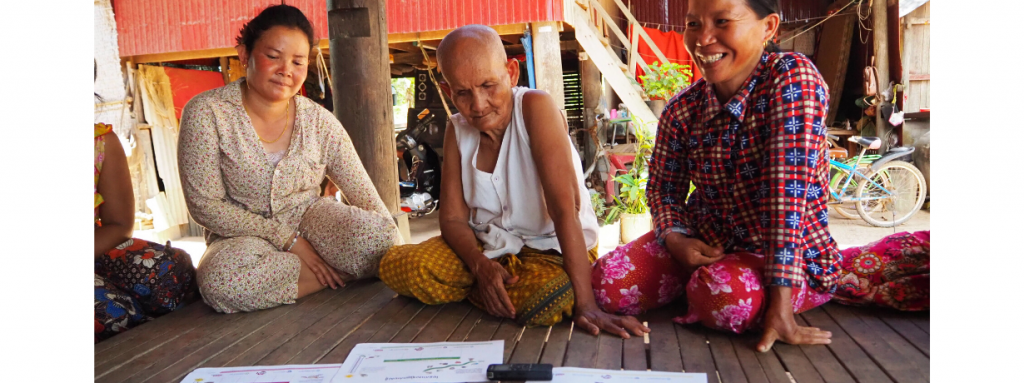4 min read
Microfinance is a tool that empowers those living in poverty by giving access to basic financial services including savings, insurance, and credit. However, like any other tool, microfinance can do good or cause harm and needs to be executed ethically to be effective. When implemented without rules or regulations, microfinance can lead to problems like over-indebtedness.
What is over-indebtedness?
We define over-indebtedness as a process that starts when an individual has difficulties repaying debts. Often, the first things to be sacrificed to make ends meet are food, education, and personal assets, which are a detriment to the quality of life for the individual and their family. While this includes the loss of property and savings, it can also have an effect on the person’s status in their community and can lead to shame and humiliation.
Phaikdey Uk, CAFE Cambodia Program Officer, from Good Return, outlines some of the factors he has witnessed that can lead to over-indebtedness.
“The main cause of over-indebtedness is that people use their loan for ‘wants’ not needs – things that don’t add to their income. People will borrow money for something like a motorbike, and they don’t use the loan to go in the right direction. When they need to pay their loan back, they take money from a moneylender, which leads to multiple loans. They also don’t care about interest because they need to pay back the Microfinance Institution (MFI), and if they don’t pay on time, they get a penalty.
In Cambodia, there are a lot of scams, especially phone scams, which promise people a prize if the ‘winners’ pay them money first. These problems happen because people are not taught about financial education”.
While the problem is severe, it is not a hopeless cause. Phaikdey has seen first-hand the benefits of programs that equip people with decision-making considerations to prevent over-indebtedness.
Protecting communities against over-indebtedness
It’s hard to help people find their way out of over-indebtedness, so focusing on prevention rather than a cure is key.
So, how can you ensure you’re not contributing to the causes of over-indebtedness?
NGOs and social enterprises can:
- Create and support education programs for people with low financial literacy
NGOs can collaborate meaningfully with local communities so that specific needs can be met. With proper financial education, individuals can learn how to use financial services effectively, including understanding loan implications and identifying a reputable institution. Financial education can also help individuals to budget, start saving, and plan for emergencies – important skills to avoid becoming over-indebted.
- Embed client protection and consumer empowerment principles
There are great resources available from the SMART Campaign – an international effort that brings financial leaders together to assist low-income clients in safely accessing financial services. Its Client Protection Principles outline the minimum standards that clients should receive when interacting with a financial service provider. To work responsibly in the sector, your organisation should encourage any financial institutions that you partner with to get certified. It is also important to include principles in your trainings and dealings with financial services.
- Lobby for widespread inclusion of financial education
Ensuring financial education for all should extend beyond high-level institutions to the grassroots: NGOs should lobby and plan for financial education to be included in schools, family conversations and communities.
Good Return’s Consumer Awareness and Financial Empowerment (CAFE) program in Asia and the Pacific empowers people through financial capability training. Learners gain a firm understanding of how to manage their money, change their habits, and confidently engage and negotiate with financial service providers. Our aim is that they go on to change their behaviors to effectively manage money in their own context, refuse an inappropriate loan, and budget to ensure they can make their repayments.
To date, over 10,000 learners have completed CAFE training in Cambodia and Nepal alone. Before their training, 86% of learners were up to date with their loan status. After completion, this rate increased to 92%.
23% of CAFE learners in Cambodia reported that their savings were higher after participating in the program, with a 54% reduction in the incidence of multiple borrowing – a behavior often identified as a major contributing factor to over-indebtedness.
Significant progress has been made through financial education programs. However, if we are to seriously address over-indebtedness, these efforts need to be supported by all organisations that focus on economic empowerment.
If you are also building pathways out of poverty in the Asia-Pacific region, get involved to empower over 50,000 learners by supporting our CAFE program.

















